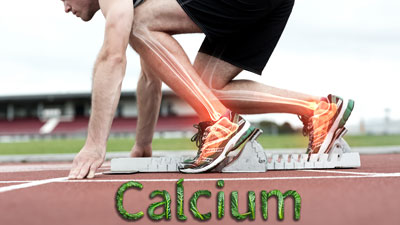
Our brain is the center of everything we are and everything we do, from our thoughts and emotions, to our voluntary movements and involuntary body functions. This is why nurturing our brain at all ages is crucial to living a long, fulfilling life.
In fact, one of our biggest fears associated with aging is suffering from cognitive decline and dementia, including Alzheimer’s disease. But long before that, nurturing our brain can help us reduce the risk of depression, anxiety, brain fog, attention deficit, and more. Oftentimes, people feel like they have no control over these disorders, when in fact, lifestyle has a direct impact on our brain.
Getting proper hours of sleep, exercising, and managing stress makes a big difference. But also, what we eat has a profound effect on mood, cognition, and our overall brain health. We’ve known for a long time that saturated fat is bad for our heart and circulation, but now we also know that it increases our risk of developing Alzheimer’s disease and dementia. We also know that there is a direct connection between our gut and our brain, and that fiber is a key nutrient to keep both healthy.
Our brain uses a large variety of nutrients to function properly, each has specific functions that have a direct effect on our mood, our attention, our memory, our sleep, our movements, and more. Below, we share what these nutrients are, what they do for our brain, and the top whole, plant-based foods where we can find them.
Click on the nutrient images below to visit their interactive pages and learn more about what they do for us. Discover their top whole-food, plant-based sources; learn important facts, and try our personalized nutrition calculators.
Fiber feeds our good gut bacteria, which in turn produce short-chain fatty acids (SCFAs) that help improve memory and learning, while enhancing our mood and brain functions. SCFAs may also reduce the risk of Alzheimer’s disease and Parkinson’s disease. Plus, fiber reduces the risk of stroke by lowering total and LDL cholesterol, and by lowering blood pressure.
When it comes to protein, these essential amino acids are key to our brain health: Histidine helps us make histamine to help our immune system, digestion, sleep, and sexual function. Phenylalanine is a precursor to dopamine, adrenaline and norepinephrine, which impact our mood and stress response. Tryptophan helps us produce serotonin, which regulates our mood, appetite, and sleep.
Omega-3 fatty acids are key to our brain’s health. There is a correlation between DHA and EPA levels in our blood, and the volume of our brain. In fact, 57% of our brain is made of DHA. Most plant-based sources provide omega 3 in the form of ALA, and our body then converts it into EPA and DHA. ALA has its own merits too, for example, it helps prevent ALS (a neurodegenerative disease) and delay its progression.
When we ingest the right amount of omega-6 fatty acids through whole, plant-based sources, it has anti-inflammatory effects that help our brain. This is very important because neuroinflammation is linked to brain development disorders like ADHD, or brain degenerative disorders like Alzheimer’s disease. However, too much omega 6 through seed oils or animal-based products leads to inflammation.
Our brain needs thiamin or vitamin B1 to metabolize glucose in order to maintain its proper function. Deficiency increases oxidative stress and inflammation. Chronic thiamine deficiency can lead to Wernicke-Korsakoff syndrome, which results in extensive neuronal death, and symptoms similar to Alzheimer’s disease like cognitive decline and memory loss.
Vitamin B3 from plants (nicotinic acid) lowers our LDL cholesterol, reducing our risk of stroke and Alzheimer’s disease. Both forms of B3, nicotinic acid and nicotinamide, help us make NAD, which is crucial for the development and protection of our neurons. Severe deficiency leads to dementia and depression. NAD can help with early Parkinson’s disease symptoms by increasing dopamine synthesis. Vitamin B3 also helps reduce oxidative stress and neuroinflammation.
Vitamin B6 is essential for the development of our brain during pregnancy and infancy. We also need it to produce serotonin, adrenaline, norepinephrine, and gamma-aminobutyrate, all related to mood and stress response. And B6 helps us maintain normal levels of homocysteine, reducing our risk of stroke, Alzheimer’s disease or dementia.
Folate has a key role in breaking down homocysteine, reducing our risk of stroke, Alzheimer’s disease or dementia, bipolar disorder, obsessive compulsive disorder, and more. This B vitamin also helps us produce serotonin, which regulates our mood, appetite, and sleep. A folate deficiency is linked to depression and to megaloblastic anemia that often leads to irritability and poor concentration.
Vitamin B12 is essential for brain development and to maintain healthy brain function throughout our lives. We need B12 to produce various chemicals, including serotonin and dopamine. It also removes excessive homocysteine from our body, thus reducing our risk of stroke, Alzheimer’s disease or dementia, obsessive compulsive disorder, bipolar disorder, among others.
The largest accumulation of vitamin C in our body, is in our brain. It is a vital antioxidant that also helps restore vitamin E, protecting our brain from neurodegenerative diseases. Vitamin C impacts our mood, stress response, and sleep by helping convert dopamine into norepinephrine, and 5-HTP into serotonin. Deficiency is linked to depression. It also modulates glutamate, a neurotransmitter with a key role in attention, long term learning and memory.
Vitamin D is needed for brain development. Prenatal deficiency may result in learning and memory problems. A severe deficiency could lead to autism and schizophrenia. Vitamin D is involved in the synthesis of serotonin, dopamine, adrenaline and noradrenaline. This nutrient is also a strong antioxidant, anti-inflammatory, and immune system regulator. Plus, it helps guard off or treat depression, anxiety, and disorders like OCD. It also helps prevent dementia and Alzheimer’s disease, and treat Parkinson’s disease.
Vitamin E helps prevent oxidative stress in our brain, protecting it from neurodegenerative diseases like Alzheimer’s disease, Parkinson’s disease, and Huntington’s disease. Increasing our intake of vitamin E from food can reduce the risk of Alzheimer’s disease by about a half! Vitamin E through supplements does not have the same effect.
Calcium is important for synaptic activity (the communication of signals between our neurons or brain cells) and for brain blood flow. It is also key to learning and long-term memory formation. Some early signs of calcium deficiency include brain fog and confusion, but getting too much calcium through supplements may also lead to dementia. Balance in our brain cells is key, and losing it leads to neurodegeneration, which is what happens with Alzheimer’s disease, Parkinson’s disease, Huntington’s disease and ALS.

Copper
We need copper for brain development during pregnancy and lactation. Copper is also used for the production of neurotransmitters like dopamine, and for synaptic transmission (the release and reception of neurotransmitters.) Getting too much copper can lead to cognitive decline and even Alzheimer’s disease, especially if we follow a diet rich in cholesterol and saturated fats, because copper interferes with the release of amyloid beta plaques which are formed by cholesterol.
Our brain needs our thyroid hormones to develop and function properly, and our thyroid needs iodine to produce these hormones. According to the World Health Organization, iodine deficiency is the main cause of brain damage in children, affecting both their cognitive and motor development. Deficiency during pregnancy and infancy may cause irreparable damage. In adulthood, deficiency affects our cognitive health and may be linked to dementia.
Iron deficiency can hurt our brain development during pregnancy, infancy, childhood, and even during our teen years, affecting our brain structure, and our cognitive and behavioral health. In adulthood, deficiency can also hurt our cognition. But, as we age, excessive iron may lead to oxidation and toxicity, which is linked to neurodegenerative diseases like Alzheimer’s and Parkinson’s. Our body can excrete any excess iron we get from plants, but it can’t regulate excess iron from animal-based sources.
Magnesium has a strong impact on our cognitive health and on our mood. Deficiency is linked to degenerative diseases like Alzheimer’s disease, Parkinson’s disease, and Multiple Sclerosis. It’s also linked to depression and ADHD. Magnesium helps keep toxins and pathogens out of our brain by strengthening our brain-blood barrier. It helps fight neuroinflammation, and it even helps prevent headache migraine attacks. Magnesium also has an important role in nerve signal transmission, and it modulates neurotransmitters like serotonin and dopamine.
Plant-based foods rich in potassium help improve our blood pressure and reduce the risk of stroke. Increasing our intake by 1,640 mg per day was associated with a 21% reduction of stroke risk! Not only that, hypertension has been associated with the onset and progression of Alzheimer’s disease. A study showed that increasing potassium intake decreased the formation of amyloid beta plaque, oxidative stress and inflammation, and it improved cognitive performance.
Our brain needs thyroid hormones to develop and function properly, and our thyroid gland needs both iodine and selenium to make these hormones. Selenium also protects our brain against inflammation and oxidative stress. Our brain is particularly dependent on selenium because it consumes higher amounts of oxygen and it’s very susceptible to oxidative stress which can lead to neurodegenerative diseases. Selenium may be helpful in treating Alzheimer’s disease, multiple sclerosis, and stroke.
Zinc is key for the generation of brain cells during pregnancy and through our entire lifespan. It also has a key role in synaptic activity modulation (controlling the transmission of signals between our brain cells or neurons.) Deficiency is linked to impaired brain development, mood disorders like depression and anxiety, cognitive issues affecting learning and memory, and neurodegenerative disorders. It may also be a risk factor for stroke. Plus, having adequate zinc levels prior to suffering traumatic brain injury may help reduce neuronal damage.
Below you can see some of the top whole-foods, plant-based (WFPB) nutrient sources for our brain. However, maintaining a balanced WFPB diet will provide all the nutrients our brain needs from a great diversity of plants.
Hover over each food below to see their top brain-related nutrients, or click on it to visit its interactive page with a personalized calculator to help you identify all the nutrients this food provides for you and your loved ones. You will also find tips to help you select, store, and prepare them. For additional sources per nutrient, click on the nutrient images on the section above.
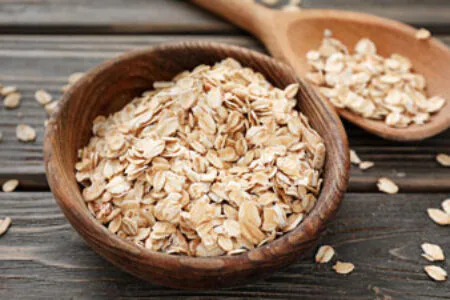
Oats
Rich in protein, fiber, vitamin B1, copper, iron, magnesium, selenium and zinc. They also offer a good amount of omega 6 and potassium.

Collard Greens
Rich in fiber, folate, vitamin C and vitamin E. Top source of calcium. They also offer a good amount of omega 3, vitamin B6, magnesium and potassium.

Chickpeas
Rich in protein, fiber, folate, calcium, copper, iron, magnesium, potassium and zinc. Also a good source of omega 6, vitamin B1, vitamin B6 and selenium.
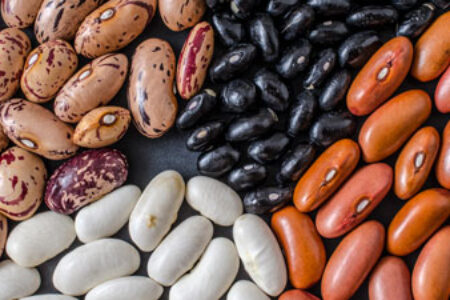
Common Beans
Rich in protein, fiber, omega 3, vitamin B1, vitamin B6, folate, copper, iron, magnesium, potassium and zinc. White beans are a top source of calcium. Black beans also provide anthocyanins, and red kidney beans are a great source of quercetin.
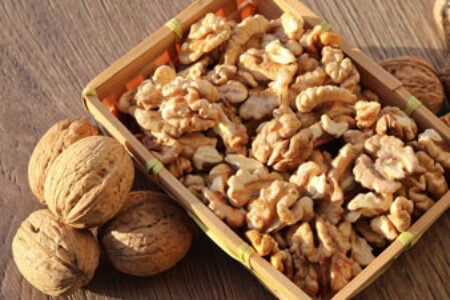
Walnuts
Rich in vitamin B6, magnesium, and phytonutrients that help vs. Alzheimer's disease, Parkinson's disease, stroke and depression.

Butternut Squash
Rich in fiber, vitamins B6, C and E, calcium, magnesium and potassium. Plus, it's a great source of beta carotene and a good source of vitamin B1, vitamin B3, folate and copper.
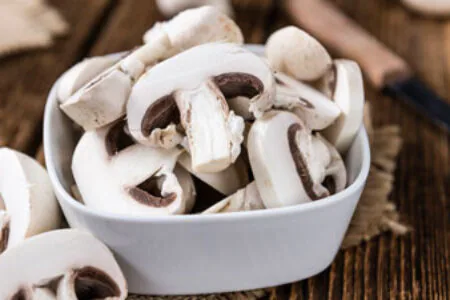
White Mushrooms
Rich in vitamin B3, copper, iron, potassium, selenium and zinc. Also a good source of fiber, vitamin B1 and vitamin B6.

Whole Wheat
Rich in protein, fiber, vitamin B1, vitamin B3, vitamin B6, copper, iron, magnesium, selenium and zinc. It also offers a good amount of potassium.
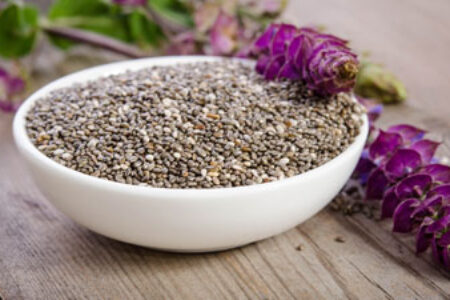
Chia Seeds
Top source of omega 3. Rich in fiber, calcium, copper, magnesium and selenium. Also a good source of vitamin B1, vitamin B3, iron and zinc.

Sweet Potato
Purple sweet potatoes are a top source of anthocyanins while the orange ones are a top source of beta carotene. Both are rich in fiber, vitamin B6, vitamin C, copper and potassium. They are also a good source of protein, vitamin B1, vitamin B3, calcium, magnesium and zinc.

Seaweed
Seaweed is our only reliable WFPB source of iodine. Nori can also provide vitamin B12. Plus, seaweed is a good source of folate, calcium, copper and magnesium.

Lentils
Rich in protein, fiber, vitamin B1, vitamin B6, folate, copper, iron, magnesium, potassium and zinc.

Broccoli
Rich in vitamin B6, folate, vitamin C, calcium and potassium. Also a good source of protein, fiber, vitamin B1, copper, iron and magnesium.
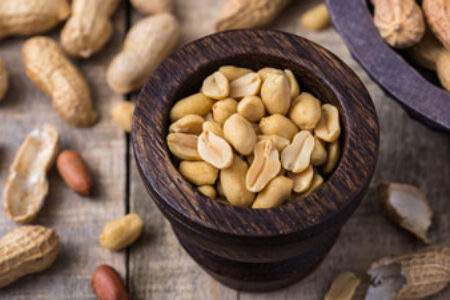
Peanuts
Rich in protein, omega 6, vitamin B1, vitamin B3, folate, vitamin E, copper and magnesium. Also a good source of fiber, potassium, iron and zinc.

Soybeans
Rich in protein, omega 3, omega 6, vitamin B1, folate, calcium, copper, iron, magnesium, selenium and zinc. Also a good source of fiber and potassium.
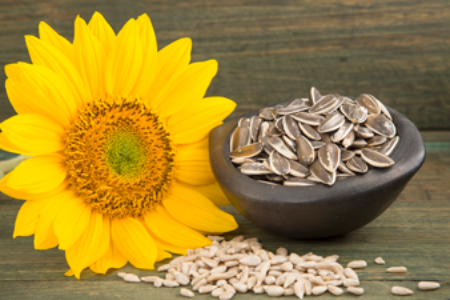
Sunflower Seeds
Rich in omega 6, vitamin B1, vitamin B3, vitamin B6, folate, vitamin E, copper, magnesium, selenium and zinc. Also a good source of protein, fiber, iron and potassium.













